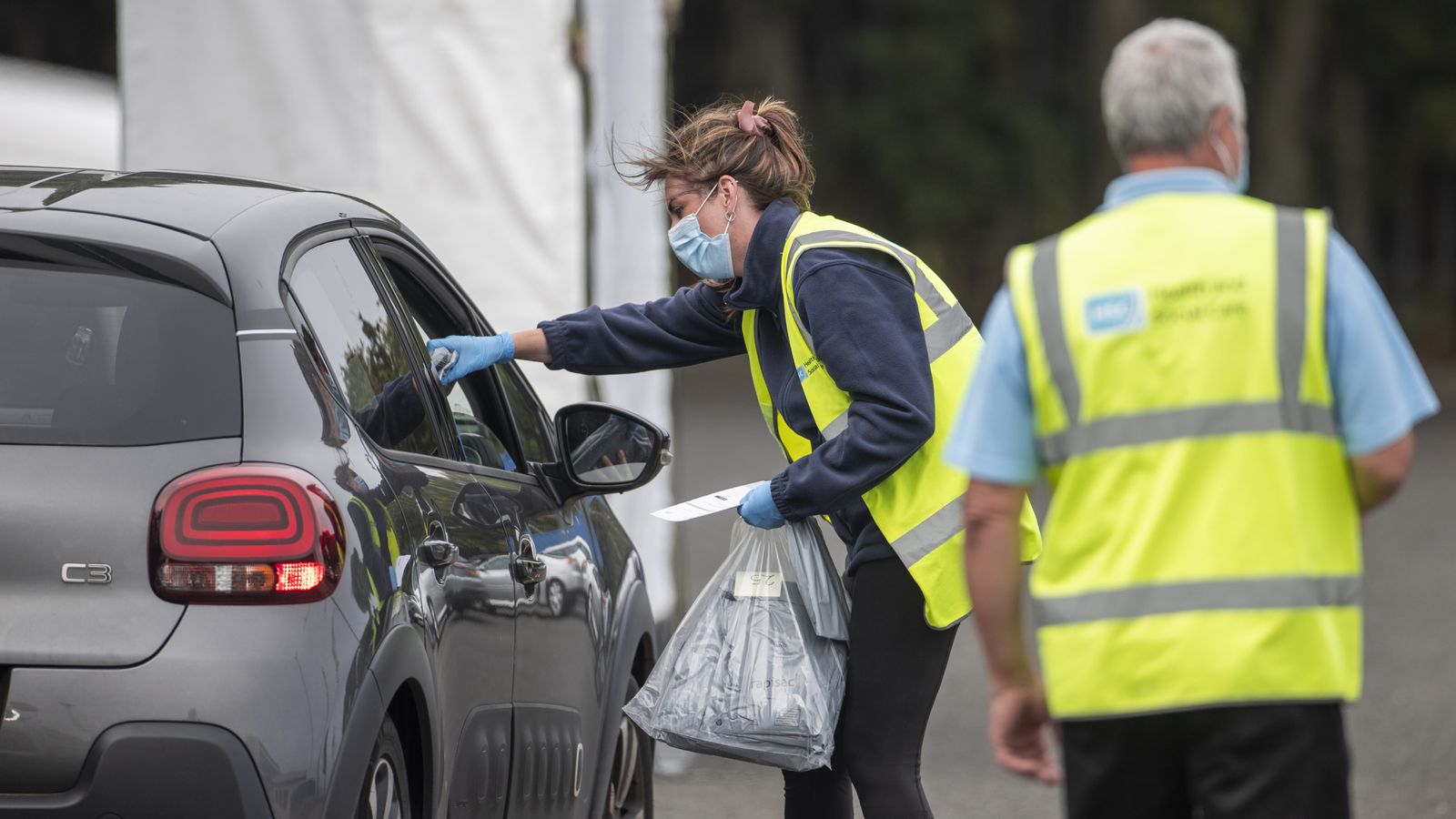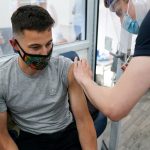Coronavirus cases in the UK may not peak until December, with people going back to schools and offices “highly likely” to result in an increase in hospital admissions, government modellers have said.
According to the Scientific Pandemic Influenza Group on Modelling (SPI-MO), there is “the potential for another large wave of hospitalisations” from COVID over the coming months.
But with people still acting cautiously over the summer, the peak of infections is likely to be delayed and happen somewhere between October and December, its latest statement said.
Live COVID updates from the UK and around the world
Please use Chrome browser for a more accessible video player
SPI-MO experts said that “high levels of homeworking” have played a “very important role” in slowing the epidemic in recent months.
But it warned: “It is highly likely that a significant decrease in homeworking in the next few months would result in a rapid increase in hospital admissions.”
A separate document, from the government’s Scientific Advisory Group for Emergencies (SAGE), has predicted that the reopening of schools in England, Wales and Northern Ireland will cause cases to surge.
COVID-19: Professor Chris Whitty says Nicki Minaj ‘should be ashamed’ over vaccine tweet
COVID-19: How does Boris Johnson hope to avoid another winter lockdown?
‘COVID is still out there’: PM says our position is ‘challenging’ – amid warning over Delta variant in winter
In Scotland, where term resumed on 10 August, “cases began to increase two weeks before the return of schools”.
SAGE has said coronavirus case rates are highest in younger age groups and have stabilised at around 2,700 per 100,000 among 14 to 15-year-olds.
SPI-MO said implementing “early, low-cost” measures would help avoid the NHS being overwhelmed and potential lockdowns this winter.
It recommended “light touch” options such as more homeworking, face masks in more settings, widespread testing and requiring all contacts of positive cases to isolate again.
This is largely in line with the government’s COVID ‘winter plan B’.
Follow the Daily podcast on Apple Podcasts, Google Podcasts, Spotify, Spreaker
SPI-MO said that European countries which have “maintained more interventions than the UK are seeing their epidemics decline”.
The experts said there were no further variants of concern to report and that any peak this winter is unlikely to be as big as the one in January due to the success of the vaccine rollout.
But it warned it will “take several weeks to be able to understand the full impact” of changes in school and office working, as we enter a “period of uncertainty”.
Public Health England (PHE) also advised SAGE in its most recent paper that vaccine efficacy against symptomatic infection could start waning from 10 weeks after the second dose.
It said that by 20 weeks the AstraZeneca jab was just over 50% effective while Pfizer was just over 70%.
But both vaccines were still seen to be very effective against hospitalisation after 20 weeks – 95% for Pfizer and 80% for AstraZeneca.
Any decline in efficacy was most evident in older adults, PHE added.






















